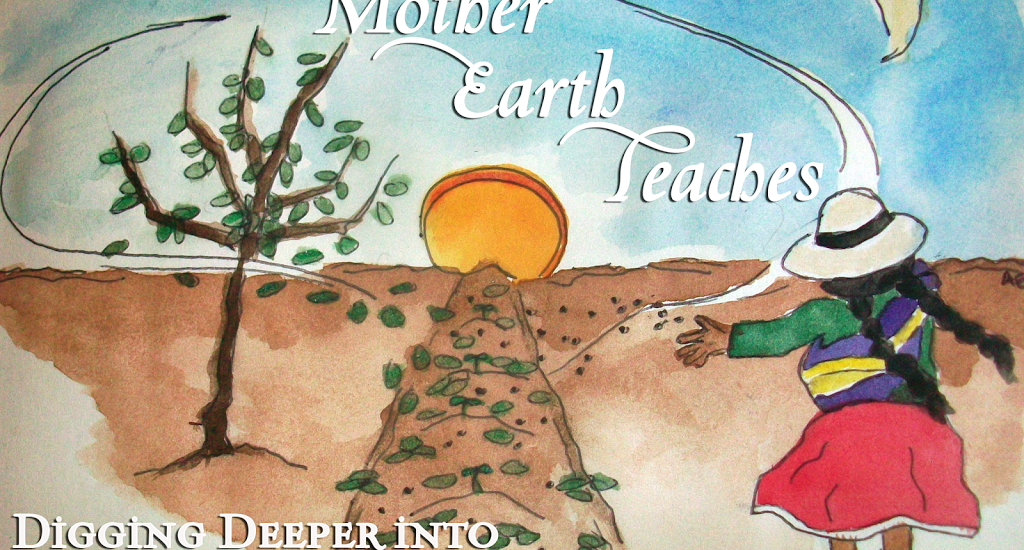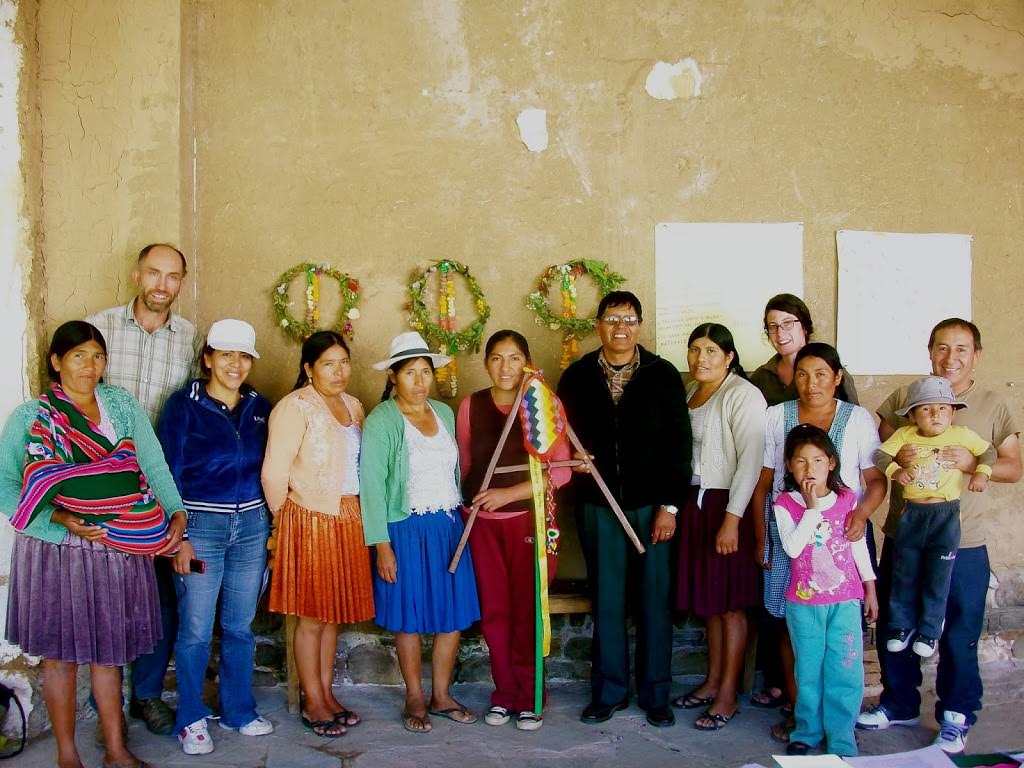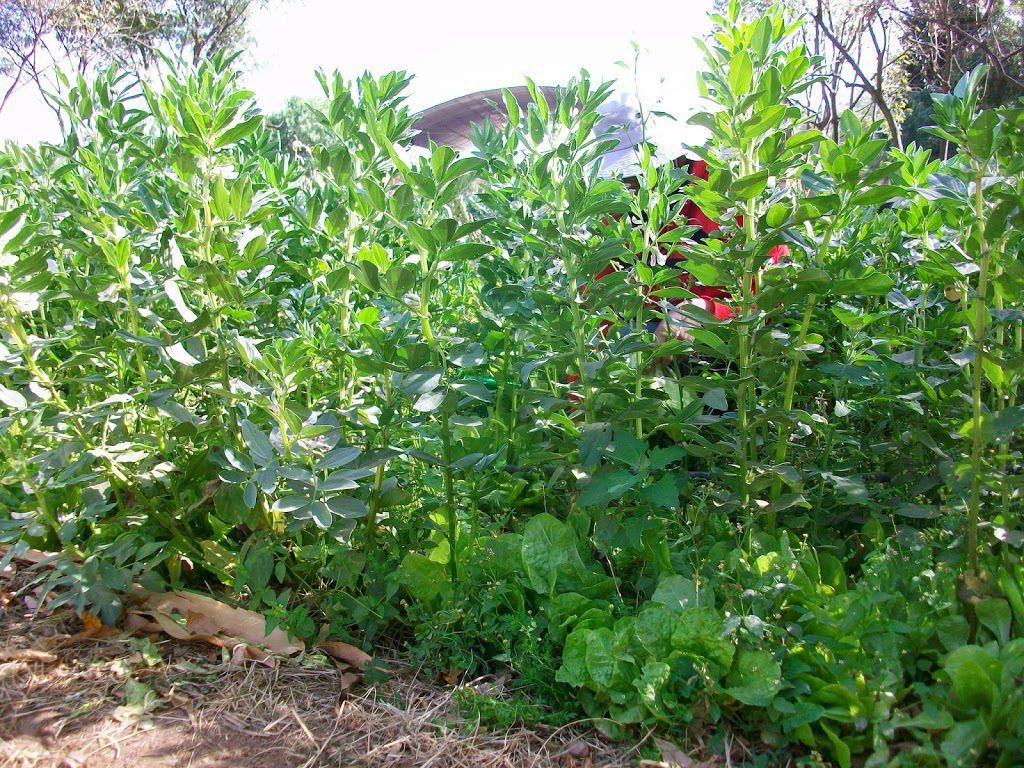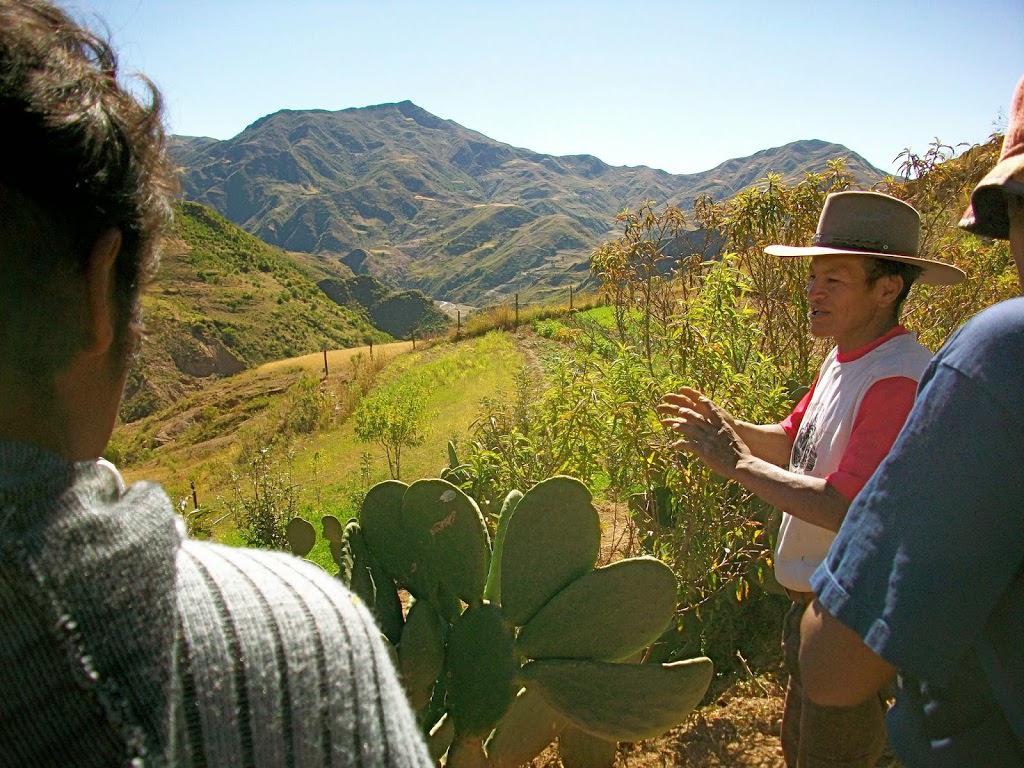Learning from Weeds

At the end of the day, I am learning that Mother Earth is our greatest teacher.
When we look close at the garden, it is all there.
“Greatest teacher” of what? What is “all there”?
In reconnecting with the Earth and the communities that work her land, I have been reminded of the significant challenges that lay before us.
I have known for a long time now how grave the situation is that our planet is in. But I have only recently started to share work with communities that have been and will be disproportionately affected by climate change.
And yet, for as apocalyptic as the future does look, learning from the wisdom of Mother Earth has deeply renewed my faith in the potential we have to respond to these crises.
When facing these seemingly insurmountable challenges, her wisdom grounds me and offers me a new perspective.
Learning from the task of weeding in the garden offers some great examples.
 |
| The community of Santa Rosa with the Santa Vera Cruz parish community accepting the invitation to host next year’s workshop on sustainable agriculture as a part of the Plataforma Regional de Suelos |
Since joining the Plataforma Regional de Protección de Suelos, a regional organization of NGOs that practice sustainable agriculture here in Bolivia, our Pastoral de la Madre Tierra has attended various workshops they offer.
And in these workshops we have learned to study Mother Nature in order to transform the challenges we experience in our work.
In the garden, we constantly deal with weeds.
Instead of spraying the weeds with chemicals we are learning about companion planting. We are learning which seeds to plant together so that they mutually benefit one another, a practice that can significantly reduce weeds as well as pests.
 |
| Lettuce combined with fava beans in the parish garden |
In these workshops we have learned that the values at the root of companion planting are collaboration and coexistence, not competition.
When growing plants are faced with weeds that threaten their growth and even their existence, they can move towards collaboration, to learn how to live together instead of compete.
These lessons are learned from the relationships that naturally occur in our environment. If we look at any ecosystem, we see the ways the different species coexist and even collaborate.
 |
| Great production of lettuce harvested from the combination with fava beans. |
When confronting harsh realities like that of climate change, what would it look like to take a step towards humility as a human race? Instead of relying on competition to save us, could we take time to learn from the wisdom Mother Earth? Could we invest in collaboration and commit to coexistence?
And in these workshops we have also learned that not all weeds are bad, not all need to be removed. Instead of fearing weeds, we are learning to work with them. We let them grow and stay around the seeds we have planted until they enter into competition, because we trust that those weeds, when small, can also maintain the life in the soil.
And many times while weeding I have found myself meditating on the process of weeding as a spiritual practice.
What are the weeds, or weaknesses, or shadow sides in me that keep me from God and others? How can I coexist with those weeds instead of denying they exist, so that I might grow?
In reconnecting with the Earth, I am learning to focus less on scarcity and more on the abundance of wisdom we have available to us through our relationship with the Earth.
 |
| At a workshop about familial sustainable agriculture in Acasio, Norte Potosí with the Plataforma Regional de Suelos |
In the midst of great challenges of an ever industrializing, globalizing and isolating society, returning to the wisdom in our natural interconnectedness, I am learning that our connection to the Earth it is not only essential to our physical survival but also a deep source of spiritual revival.
Tagged in:

